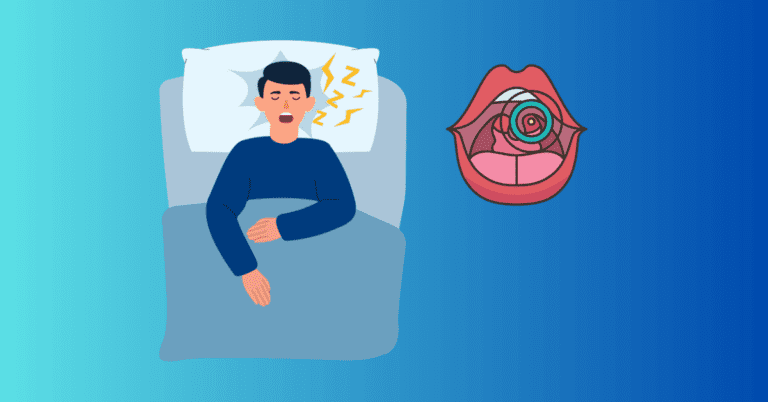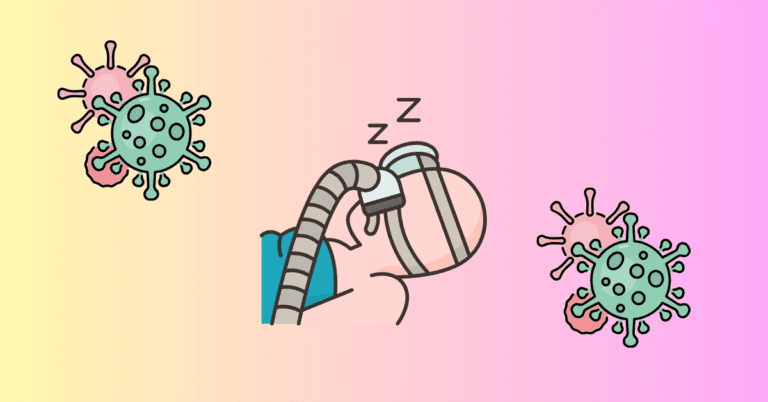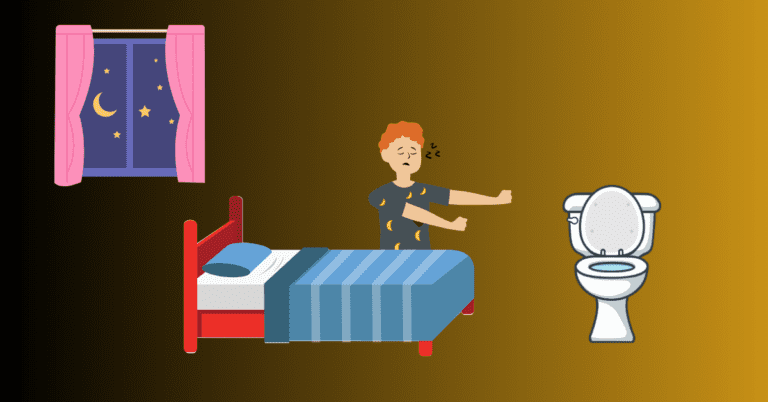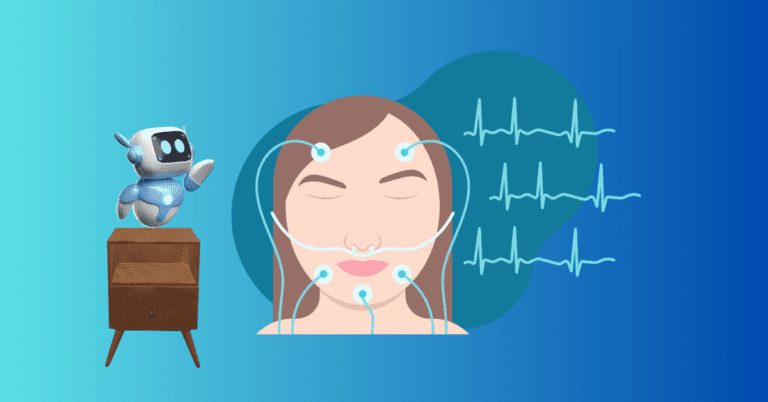Sleep Apnea Symptoms: How to Recognize the Signs Early
Sleep apnea is a serious sleep disorder that often goes undiagnosed because its symptoms can be easily mistaken for other issues, such as stress or lifestyle fatigue.
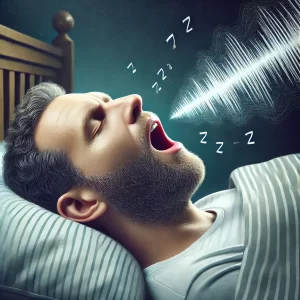
Or if you were me, you kind of suspected you had sleep apnea, but chose to ignore it until it got so bad I got a sleep study done.
Knowing the signs of sleep apnea is the first step in seeking treatment and preventing the health risks associated with this condition.
If you’ve been feeling tired, experiencing morning headaches, or your partner has complained about your loud snoring, you may be dealing with more than just a rough night’s sleep.
In this article, I’ll break down the most common symptoms of sleep apnea, the different types of sleep apnea, and how to recognize when it’s time to consult a healthcare professional.
1. What is Sleep Apnea?
Sleep apnea is a condition in which your breathing repeatedly stops and starts during sleep. These pauses in breathing, called apneas, occur when the airway becomes blocked or when the brain fails to send signals to breathe. There are three main types of sleep apnea:
- Obstructive Sleep Apnea (OSA): The most common form, caused by a physical blockage in the airway due to the relaxation of throat muscles.
- Central Sleep Apnea (CSA): Occurs when the brain doesn’t send proper signals to the muscles that control breathing.
- Complex Sleep Apnea Syndrome: Also known as treatment-emergent central sleep apnea, it is a combination of OSA and CSA.
The symptoms can vary slightly depending on the type, but most people with sleep apnea experience similar warning signs.
2. Common Symptoms of Sleep Apnea
Recognizing the symptoms of sleep apnea can be tricky because they often occur when you’re asleep. However, some signs manifest during the day as well. Here’s what to look out for:
a) Loud Snoring
Loud and persistent snoring is one of the hallmark symptoms of sleep apnea, particularly for those with obstructive sleep apnea (OSA). Snoring occurs when the soft tissues in the throat vibrate as air struggles to pass through a partially blocked airway. It’s not uncommon for a partner or family member to notice this symptom before you do.
b) Gasping or Choking During Sleep
People with sleep apnea often experience episodes of waking up gasping for air or choking. This happens because your body momentarily stops breathing, causing your brain to jolt you awake to reopen the airway. These episodes can happen multiple times per night, disrupting your sleep cycle without you realizing it.
c) Excessive Daytime Sleepiness
Feeling extremely tired or sleepy during the day, despite getting a full night’s sleep, is a common indicator of sleep apnea. This daytime sleepiness, also known as hypersomnia, happens because frequent apneas prevent you from reaching the deeper, restorative stages of sleep.
d) Morning Headaches
Waking up with headaches is another sign that your breathing may be interrupted during sleep. These headaches are usually due to a lack of oxygen and increased pressure in the blood vessels of the head.
e) Dry Mouth or Sore Throat
Waking up with a dry mouth or sore throat is common in people with sleep apnea because they often breathe through their mouth while sleeping. This mouth breathing is usually a response to a blocked nasal airway or throat.
f) Difficulty Concentrating and Memory Problems
Sleep apnea can affect cognitive function due to the lack of quality sleep. You might notice problems with memory, concentration, or focus throughout the day. It’s not uncommon to feel mentally foggy or forgetful when sleep apnea is left untreated.
g) Irritability and Mood Changes
A lack of quality sleep can lead to mood changes, irritability, anxiety, or even depression. Sleep deprivation affects your emotional regulation, making it harder to cope with stress or manage day-to-day responsibilities.
h) Frequent Nighttime Urination (Nocturia)
People with sleep apnea may find themselves waking up frequently to urinate during the night. This is because changes in breathing patterns and oxygen levels affect hormone levels that regulate fluid balance.
i) Insomnia or Restless Sleep
Difficulty staying asleep or experiencing frequent awakenings throughout the night could be a sign of sleep apnea. People with central sleep apnea, in particular, may wake up frequently without obvious gasping or choking, making it easy to overlook this symptom.
j) High Blood Pressure
Sleep apnea can contribute to high blood pressure due to the repeated drops in oxygen levels during apneas. The sudden drops in oxygen cause your blood pressure to rise and put additional strain on your cardiovascular system.
3. Symptoms Specific to Central Sleep Apnea (CSA)
Central sleep apnea shares many symptoms with obstructive sleep apnea, but there are a few signs unique to CSA:
- Shortness of Breath Upon Waking: People with CSA may wake up feeling short of breath or with the sensation that they can’t get enough air.
- Difficulty Breathing When Lying Down: Symptoms may worsen when lying flat, making it more comfortable to sleep in an elevated position.
- Less Noticeable Snoring: Snoring is less common in central sleep apnea compared to OSA, as it’s not caused by a physical obstruction.
4. Symptoms in Children with Sleep Apnea
Children can also suffer from sleep apnea, but the symptoms can be different from adults. Here are some signs to watch for in children:
- Mouth Breathing: Constant mouth breathing, especially during sleep, can indicate airway obstruction.
- Bedwetting: Frequent bedwetting past the age of toilet training can be a sign of sleep apnea in children.
- Behavioral Problems: Hyperactivity, irritability, or difficulty focusing in school could be due to poor sleep quality caused by sleep apnea.
- Growth Issues: Sleep apnea can interfere with a child’s growth and development due to disrupted sleep cycles.
5. Why You Shouldn’t Ignore Sleep Apnea Symptoms
Sleep apnea is more than just a minor inconvenience—it can have serious health consequences if left untreated. Here’s why you should pay attention to these symptoms:
- Heart Disease and Stroke Risk: The strain that sleep apnea puts on your heart can increase the risk of heart disease, heart attacks, and stroke.
- Type 2 Diabetes: Sleep apnea is linked to insulin resistance, making you more susceptible to type 2 diabetes.
- Cognitive and Mental Health Issues: Lack of sleep affects your brain’s ability to function, leading to memory problems, concentration issues, and increased anxiety or depression.
- Daytime Fatigue and Accidents: Excessive daytime sleepiness can lead to accidents at work, home, or on the road, putting yourself and others at risk.
6. When to See a Doctor
If you or a loved one are experiencing any of the above symptoms, it’s important to consult a healthcare professional.
A sleep study, known as polysomnography, can provide a definitive diagnosis. This test monitors your breathing, oxygen levels, and other vital signs during sleep to determine if you have sleep apnea and how severe it is.
Your doctor may recommend treatment options such as CPAP (Continuous Positive Airway Pressure) therapy, lifestyle changes, or even surgery, depending on the severity of your condition.
7. Final Thoughts: Don’t Ignore the Warning Signs
If you suspect you might have sleep apnea, don’t ignore the warning signs.
Early intervention and treatment can prevent complications and help you get back to restful, rejuvenating sleep.
And even more important, you will probably lengthen your life span.
